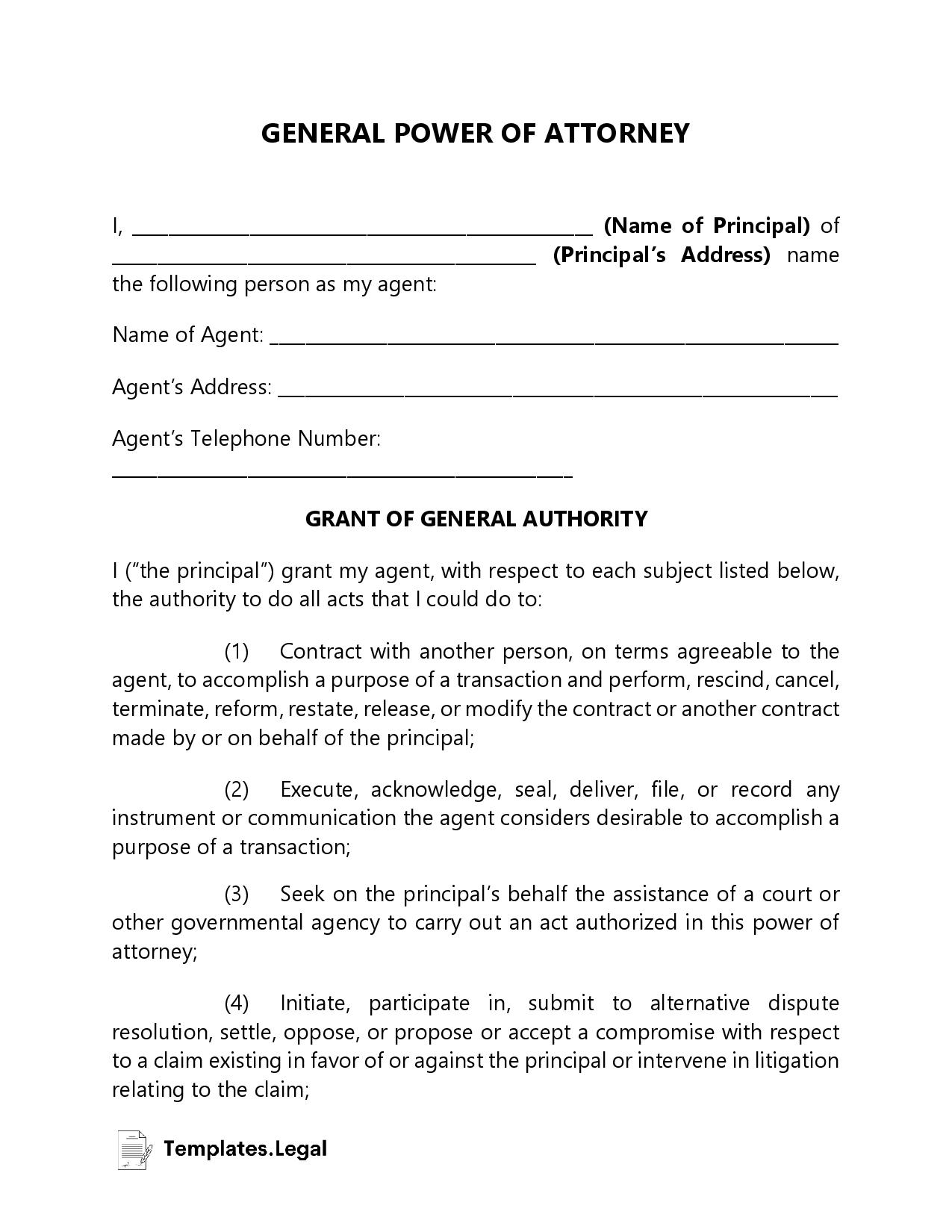General Power of Attorney Templates
A general power of attorney (POA) is a legal document. This specific type of document authorizes a chosen individual to act on your behalf in a defined capacity. This remains valid as long as you are mentally capable of managing your own affairs.
There are many reasons why you would need such a document, including healthcare issues, money management, and legal management of resources.
General Power of Attorney By State
This document authorizes an individual of your choosing to take care of financial and legal affairs, as long as you are deemed able and fit to make sound decisions. Use our free general power of attorney template to get started.
What Are the Different Types of Power of Attorney?
In general terms, this is a legal, written document where you (the principal) authorize someone you trust (the agent) to act on your behalf in a defined capacity. You decide how much and what type of authority to grant your agent. The legal document will have these details outlined to reflect your wishes.
The different types of such a document include:
- In a general power of attorney, the authority of the agent begins when the principal executes the document. That authority ends if the principal terminates it or if the principal becomes mentally incapacitated.
- A durable power of attorney remains effective even when the principal is incapacitated.
- A limited power of attorney grants the agent authority to act on behalf of the principal in specified scenarios. When this document is limited, the agent does not have full authority over the principal.
- A medical power of attorney can be useful if you want to grant someone the authority to make tough medical decisions on your behalf. This type of document can only be granted by your doctor, should they determine you’re unable to make decisions for yourself.
- A child/minor power of attorney document authorizes an agent to temporarily be the legal guardian of your child(ren). This type of POA remains in effect for a determined amount of time or is triggered after an event happens, such as both parents becoming debilitated.
Why Would I Need Power of Attorney?
Certain circumstances may bring about the need for a power of attorney.
A soldier may want a POA before they get deported overseas. Young folks who often travel or people with careers taking them away from home for long periods of time may also want to give someone a POA over their affairs. This way, while you are gone, someone can help you with your properties, bills, or government-related items.
For the most part, a POA is typically established by families when an elderly loved one is facing a long-term health problem. This helps the family handle the situation with less stress and a greater focus on their loved one.
How Do I Get a Durable Power of Attorney?
Before you begin the process, be sure that you, the principal, have an agent you can trust and who is willing to act on your behalf with your best interests at heart. If you have your person, then the two of you can begin this journey together.
- Step 1: Find applicable POA forms.
You can download our free general POA template on top of this page.
Make sure the forms you find or download apply to your state/country. - Step 2: Complete the form
Provide the information necessary to fill in the form. Once completed, read it over carefully with your agent.
- Step 3: Sign the document in front of a notary.
Your durable POA will go into effect as soon as it’s signed. No matter the state, you will be required to sign in front of a notary. If you don’t have a notary and don’t know where to find one, you can use this Notary Locator by the American Society of Notaries.
- Step 4: Share copies of the document as necessary
You will need multiple copies of the document to give to any party who will require proof of the POA. For example, a medical POA will have to be filed with your doctor, whereas a financial one will have to be presented to banks or financial institutions so your agent can access your accounts.
You and your agent should keep your copies of the power of attorney document in a safe place. Ensure that no one else has access to it and that no one else will come to the idea that it needs to be tampered with.

